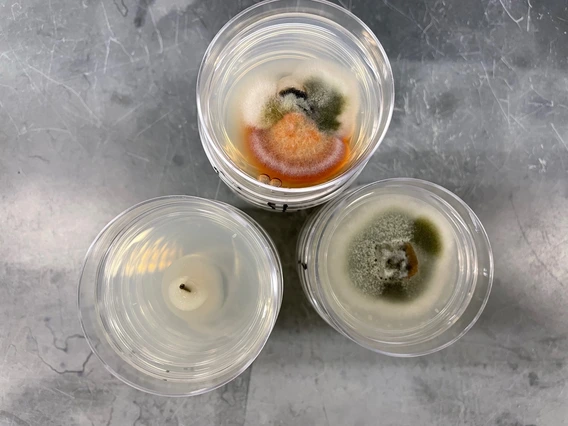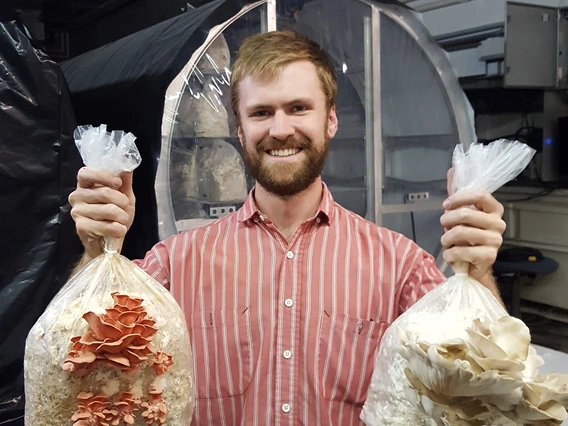B.S. in Applied Biotechnology
You can join the fast-growing biotechnology industry and help solve complex challenges related to population growth, human health and climate change.
Our program pairs a solid foundation in microbiology, plant biology, food science and nutrition, with hands-on learning alongside faculty mentors or in outside internships. You will develop skills to use microorganisms and plants in modern food production, medicine and the chemical industry that will help you launch a career in biosciences working in agriculture, food or manufacturing.
Why Major in Applied Biotechnology?
You have a curiosity in using living cells and biological processes to develop products and technologies to better the world. A degree in applied biotechnology allows you to turn that interest into a meaningful career that will address some of the world’s most pressing questions in the areas of food production, health and sustainability. Our students find work in industries related to developing vaccines, biofuels, fermented food and beverages, biologic pharmaceuticals, insect-resistant crops, or in basic research or medicine.
A degree in applied biotechnology prepares you for careers in food production, health and sustainability. It also can serve as a springboard for graduate school. According to the U.S. Bureau of Labor Statistics, the median pay for popular careers related to applied biotechnology in agricultural and food sciences is $76,400 per year (2023).
There are a variety of career opportunities available to students who complete a B.S. in Applied Biotechnology, including:
- Biological technician: Conduct scientific tests, experiments and analyses in collaboration with biological and medical scientists.
- Food scientist: Create new food and beverage varieties and improve the safety and nutrition of existing food products.
- Industrial microbiologist: Monitor and solve problems related to the use of microorganisms in the production of food, medicine and other materials.
- Biomedical engineer: Combine biology and medicine with engineering to develop machines and processes to solve medical and health-related problems.
- Process development associate: Develop processes to improve product yield and reduce costs in various areas, including fermentation and purification, and research and implement new methods and technologies to enhance production.
As an applied biotechnology student, you’ll gain knowledge and skills in microbiology, plant biology, genetics, food science, nutrition and more. Courses required to complete a bachelor of applied biotechnology are subject to change, so remember to meet with your advisor regularly to review your course plan.
Applied Biotechnology students have the unique opportunity to gain fundamental and practical experience in the classroom, lab and field with courses like the following:
- Biotechnology Laboratory
- Food Toxicology
- Plant Biotechnology
- Microbial Genetics
- Industrial Biotechnology
- Bioethics
Program emphases
You may choose from three emphasis areas: applied biotechnology, which is our most customizable option; food and beverage fermentation; and industrial plant and microbial biotechnology.




